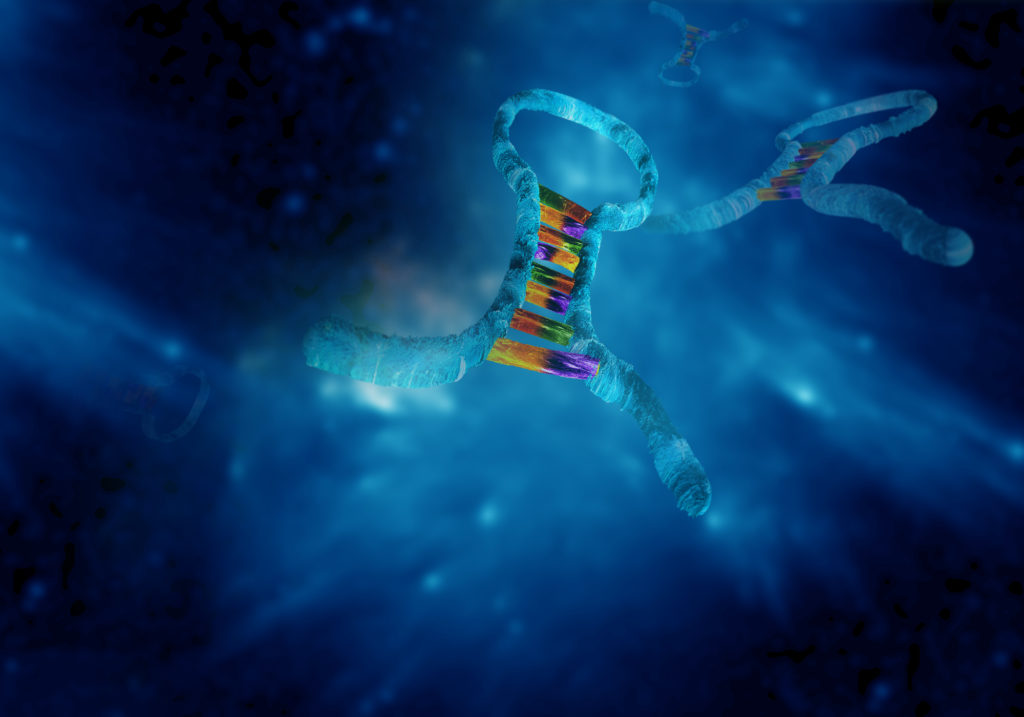Immune checkpoint inhibitors (including anti-CTLA-4 and anti-PD-1) have shown substantial clinical success in many cancers but have been linked to rare immune-related adverse events (irSAE). The molecular underpinnings of irSAE have not been extensively explored. Therefore, NanoString Technologies has sought to characterize the immune composition of tissue affected by immune checkpoint inhibitor-mediated inflammation with a focus on colitis and neurologic toxicity.
The development of a novel digital spatial profiling platform by NanoString Technologies enables deep molecular characterization of immune rich tissue using digital optical barcodes. FFPE validated antibodies are digitally barcoded using photocleavable DNA oligo tags to measure 30-50 proteins in tissue. Regions of interest (ROI), selected based on a fluorescence imaging scan of the entire tissue, were illuminated sequentially with focused UV light to release the oligos. Following each UV cycle, eluent was collected from the local ROI, moved to a microtiter plate, hybridized to NanoString® barcodes, and then analyzed with an nCounter® Analysis System.
Speakers

Joseph M. Beechem, Senior VP of Research & Development, NanoString Technologies
Joseph M. Beechem, Ph.D. has served as Senior Vice President of Research and Development, since April 2012. Prior to joining our company, Dr. Beechem held various positions at Life Technologies, a publicly-traded biotechnology tools company, most recently as Vice President, Head of Advanced Sequencing and Head of Global Sequencing Chemistry, Biochemistry and Biophysics from January 2010 to April 2012. From December 2007 to December 2012, he served as Chief Technology Officer of Life Technologies. During his career at Life Technologies, he led the design and development of multiple genetic analysis technologies, the latest advanced SOLiD sequencing technology and the single molecule nano-DNA sequencing technology.
Prior to joining Life Technologies, Dr. Beechem was Chief Scientific Officer at Invitrogen, a publicly-traded biotechnology company that acquired Applied Biosystems in November 2008 to form Life Technologies, from August 2003 to December 2007 and Director of Biosciences at Molecular Probes, a biotechnology company acquired by Invitrogen in 2003, from August 2000 to August 2003. Prior to his industry experience, Dr. Beechem led an NIH-funded research laboratory for 11 years as a tenured associate professor at Vanderbilt University. He has authored or co-authored more than 100 peer-reviewed papers in diverse fields such as biomathematics, physics, chemistry, physiology, spectroscopy, diagnostics and biology. Dr. Beechem is also named on nearly 30 U.S. patents or patent applications and has served on a number of editorial and scientific advisory boards. He received a B.S. in Chemistry and Biology from Northern Kentucky University and a Ph.D. in Biophysics from The Johns Hopkins University.

Justin Balko, PharmD, PhD, Assistant Professor of Medicine and Cancer Biology, Vanderbilt University Medical Center
Justin M. Balko obtained his Doctorate in Pharmacy from the State University of New York at Buffalo in 2004. After completion of his PhD in the Clinical and Experimental Therapeutics track of the Pharmaceutical Sciences program at the University of Kentucky in Lexington, KY, he joined the laboratory of Carlos L. Arteaga, MD, in 2009 as a postdoctoral research fellow where he was supported in part by a Susan G. Komen Post-Doctoral Fellowship Award to study triple-negative breast cancer.
Dr. Balko was appointed as Assistant Professor of Medicine and Cancer Biology in January of 2015 and also serves as Leader of Molecular Oncology for the Center for Cancer Targeted Therapeutics (C2T2). He has published approximately 40 papers in the field of molecular oncology and translational oncology research. His laboratory focuses on identifying biomarkers and mechanisms of drug sensitivity or resistance in breast cancer and other tumor types through the molecular profiling of cancer. Specifically, his laboratory seeks to find novel ways of combining molecularly-targeted agents with new immunotherapies to improve patient outcome in cancer.
Who Should Attend?
Job Functions:
|
Research Areas:
|
Xtalks Partner
Nanostring
NanoString Technologies (NASDAQ: NSTG) is a publicly held provider of life science tools for translational research and molecular diagnostics. The company’s technology enables a wide variety of basic research, translational medicine and in vitro diagnostics applications.
NanoString’s products are based on a novel digital molecular barcoding technology invented at the Institute for Systems Biology (ISB) in Seattle under direction of Dr. Leroy Hood. The company was founded in 2003 with an exclusive license to develop and market the technology. In 2008, NanoString launched its first commercial instrument system and began international sales operations with its first multiplexed assays for gene expression analysis. In 2010, the company launched new applications for the system to support microRNA analysis and copy number variation detection, and in 2013 launched Prosigna®, its first in vitro diagnostic product for prognosis of early stage breast cancer.
Organizations performing cancer research, biomarker validation and screening, and next-generation sequencing validation are rapidly adopting the nCounter® Analysis System. By providing simple, multiplexed digital profiling of single molecules, the NanoString platform represents a natural, digital downstream companion to next-generation sequencing and enables researchers to embark on studies that were previously inconceivable.
Leading researchers and institutions are finding that NanoString’s nCounter system provides the ideal platform on which to validate their discoveries and translate them into clinically useful diagnostic assays. The nCounter system is uniquely positioned to support translational research because it provides more reproducible results than methods requiring amplification, and generates high-quality data from the difficult sample types common in clinical research, including Formalin-Fixed Paraffin-Embedded (FFPE) tissues.
In addition to continuing to extend the applications for the nCounter system in the discovery, target validation and routine testing segments of the genomics research market, the company’s goal is to become the platform of choice for diagnostic testing based on multiplexed gene signatures that can be offered in hospitals and pathology laboratories worldwide, following appropriate regulatory approvals. These two synergistic areas of business focus provide researchers with a seamless transition from discovery to diagnostics.
You Must Login To Register for this Free Webinar
Already have an account? LOGIN HERE. If you don’t have an account you need to create a free account.
Create Account





